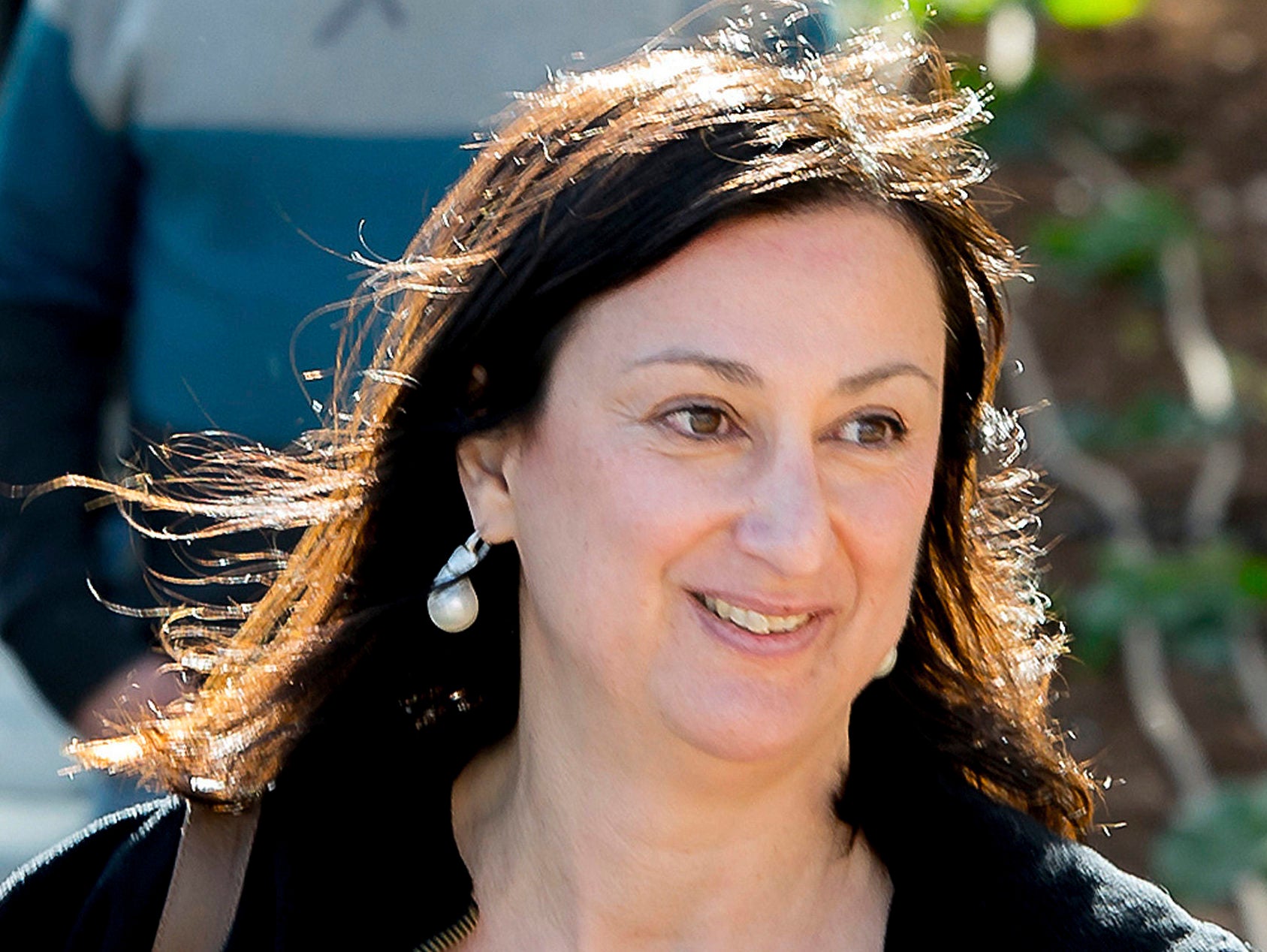
A Maltese journalist has said “a lot more can be done” by the UK and other EU countries in response to the killing of Daphne Caruana Galizia.
Caroline Muscat, who co-founded investigative journalism website The Shift News shortly after Caruana Galizia’s assassination, said there has been “no retribution” against Malta from Prime Minister Theresa May following the killing.
Caruana Galizia (pictured), 53, was looking into high-level money-laundering and corruption in Malta when she was killed in a car bomb attack near her home in October 2017.
Muscat, who co-edited a book of essays about Caruana Galizia, spoke to Press Gazette after she appeared on a panel at the London launch of the 2019 Reporters without Borders (RSF) World Press Freedom Index, in which Malta is ranked 77th out of 180 countries.
The island fell 12 places in the rankings from last year, which RSF said was partly due to Government refusals to hold an independent public inquiry into Caruana Galizia’s assassination and Prime Minister Joseph Muscat’s ongoing libel case against the dead reporter.
Asked what she thought of the EU and UK responses to the killing, Caroline Muscat said: “There’s no retribution from Theresa May… In terms of the individual countries, I think a lot more can be done there.”
A Foreign Office spokesperson responded: “The UK condemns the murder of Daphne Caruana Galizia as an attack on investigative journalism.
“It is essential that all those responsible are brought to justice and that we work together to protect the fundamental value of freedom of expression.
“The Foreign Secretary has made clear, including in Parliament, his concern to see justice in this case.
“The case has been raised with the Maltese Government – including the Maltese foreign minister and the Maltese interior minister – on a number of occasions by a number of UK government ministers and our High Commissioner to Valletta.”
Caroline Muscat was happier with actions taken by the European Union and praised its institutions for “literally circling around the [Maltese] Government”.
In a speech on a visit to Malta in June 2018, European Commissioner for Justice Vera Jourova said the Commission expected an “independent and thorough investigation” into the assassination of Caruana Galizia.
She added: “The mastermind of this murder cannot go unpunished. There is no place in the EU for the murder of journalists.”
Three men were charged with murder but have not yet faced trial, according to RSF, which has urged Malta to identify and prosecute everyone involved in the planning and execution of the killing.
The Venice Commission, a Council of Europe expert body, said it was “not in a position” to judge whether the murder investigation lived up to high standards in a report published in December.
But it did remind the Maltese government that it had an “international obligation” to ensure media could hold authorities to account.
Caroline Muscat, a former Times of Malta news editor, said: “The language in the reports gets harsher and harsher every time…
“The language was ‘if you’re not going to be doing an independent public inquiry, then we are’. I think in that sense there is an escalation.”
Malta took one of the biggest falls in the 2019 Press Freedom Index, with RSF describing it as an “increasingly hostile environment for independent journalists” where many are threatened for reporting on corruption.
In its regional analysis of Europe, the Paris-based non-profit said: “In Malta… a handful of journalists are trying to continue the work of anti-corruption blogger Daphne Caruana Galizia.
“They are shedding light on the island state’s rampant corruption and money-laundering, despite an oppressive and worrying climate still marked by Caruana Galizia’s murder in October 2017.
“As well as having to live in fear, they are subjected to intense judicial harassment.”
It noted that Malta’s rich and powerful use SLAPPs (strategic lawsuits against public participation) to hit the wallets of journalists investigating them.
Former UK culture secretary John Whittingdale, who delivered an opening speech at the index launch, described press freedom in Malta as “cause for great concern”.
Caruana Galizia’s family have this month launched legal action after their call for a public inquiry has “fallen on deaf ears”, RSF UK bureau director Rebecca Vincent said today.
She said an inquiry was needed to determine what the Maltese state knew about the killing, whether they could have protected her and any lessons for the future.
Picture: AP Photo/Jon Borg/File
Email pged@pressgazette.co.uk to point out mistakes, provide story tips or send in a letter for publication on our "Letters Page" blog
